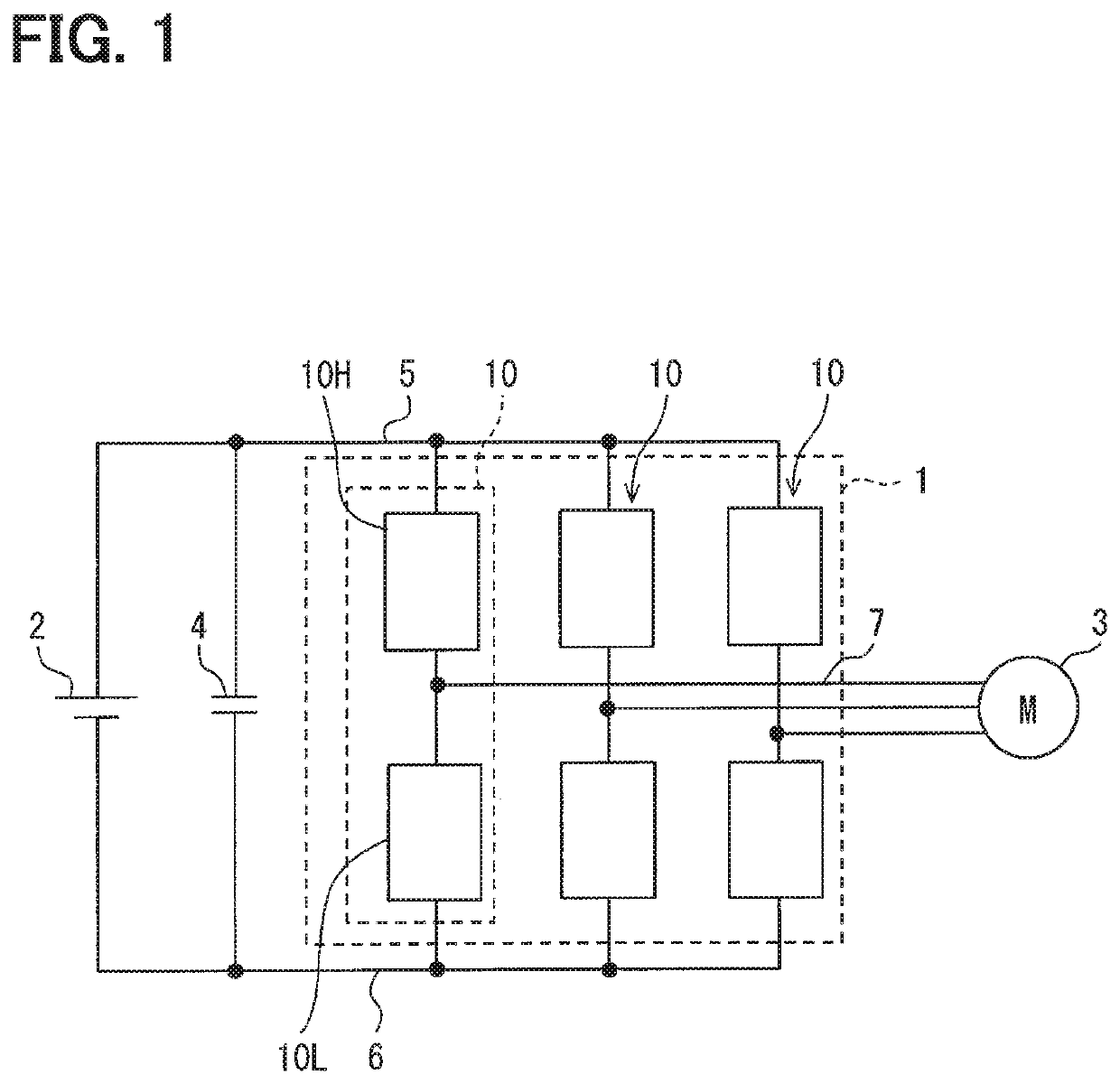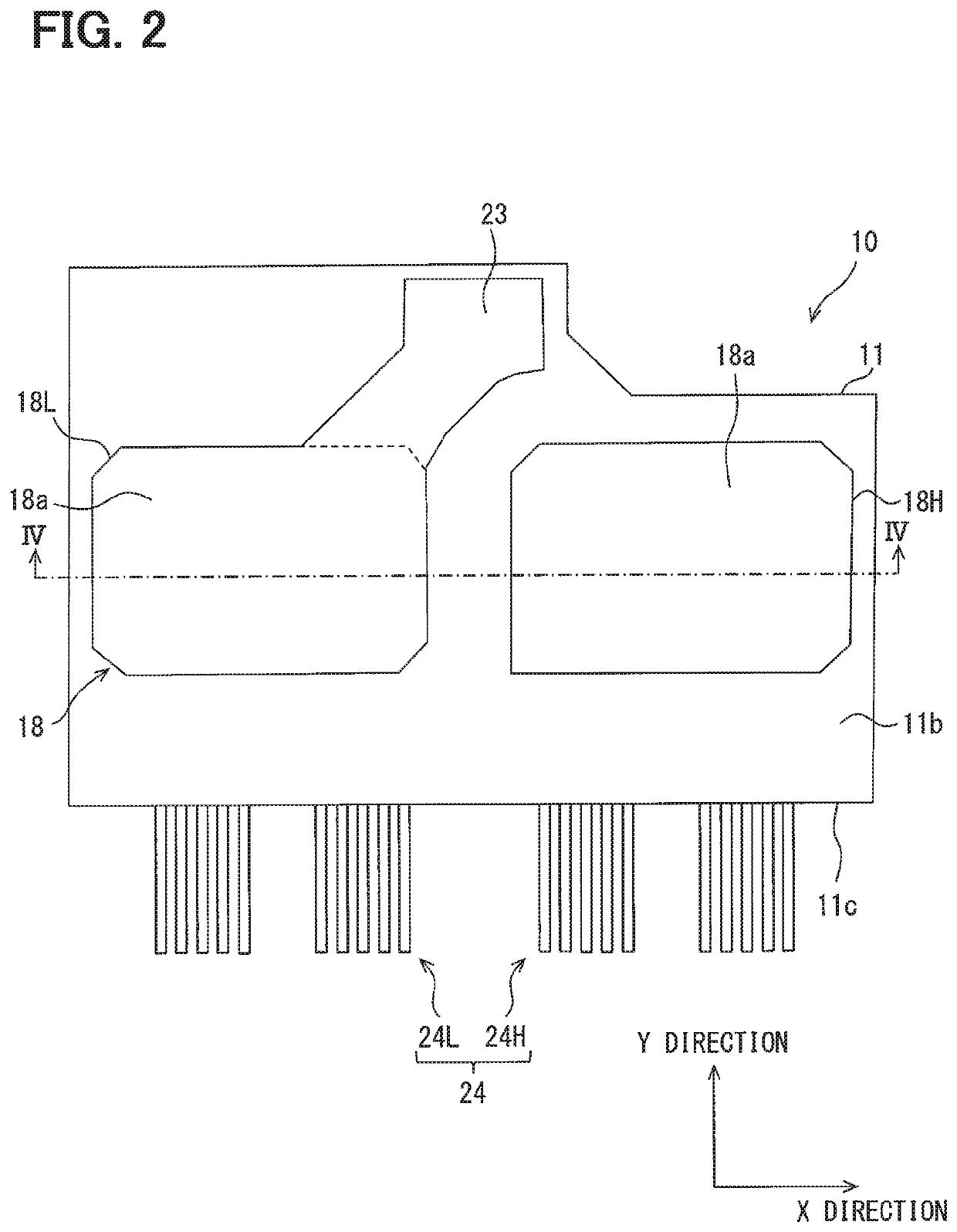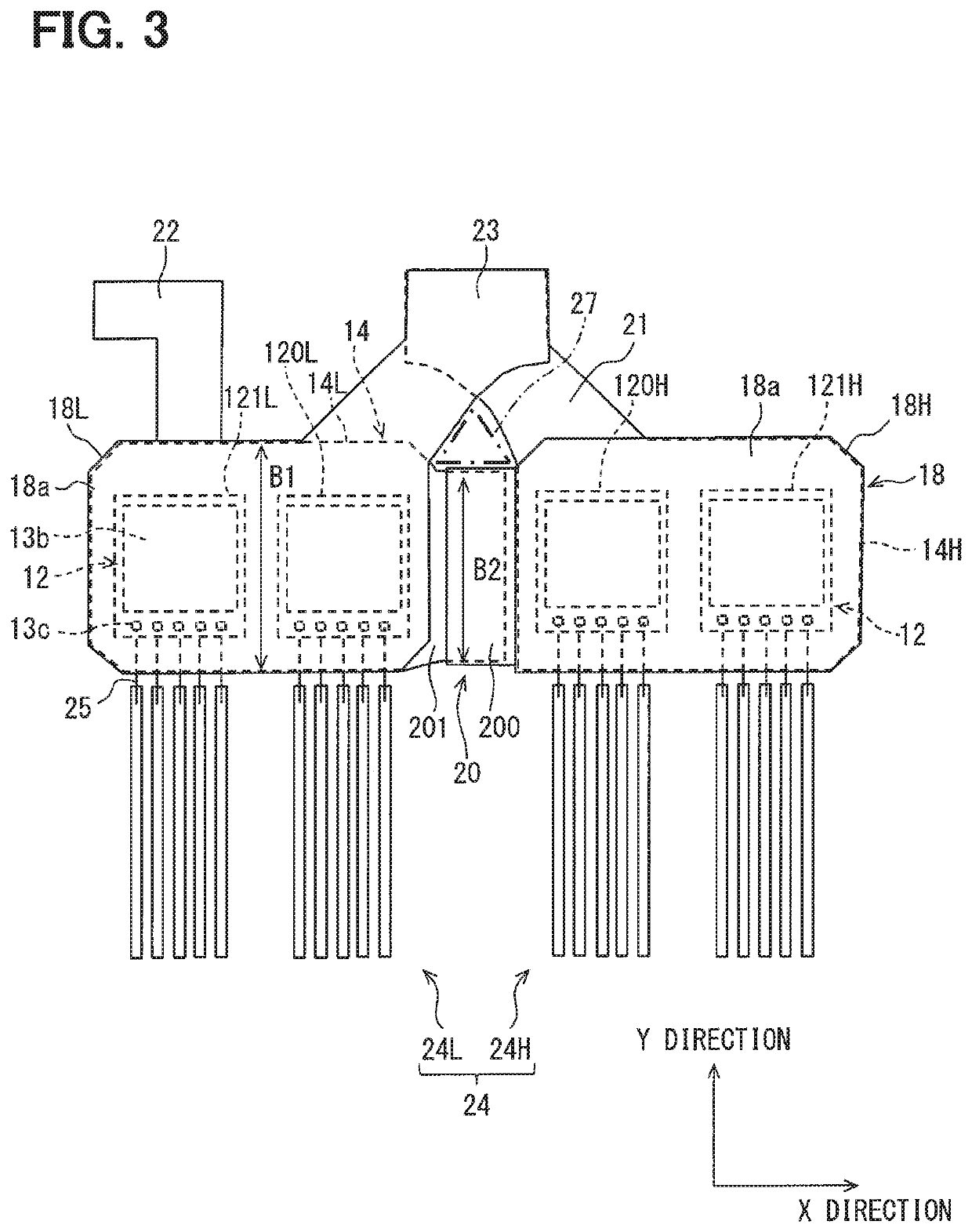Semiconductor device
a technology of semiconductor devices and signal terminals, applied in semiconductor devices, semiconductor/solid-state device details, electrical apparatus, etc., can solve the problems of abnormal gate oscillation, complex connection structure between signal terminals and external devices, and current variation, so as to suppress abnormal gate oscillation, simplify the connection structure between signal terminals and external devices, and suppress current variation
- Summary
- Abstract
- Description
- Claims
- Application Information
AI Technical Summary
Benefits of technology
Problems solved by technology
Method used
Image
Examples
first embodiment
[0035]First, on the basis of FIG. 1, a description will be given of an example of a power conversion device to which a semiconductor device is applied.
[0036]A power conversion device 1 shown in FIG. 1 is configured so as to convert a DC voltage supplied from a DC power source 2 (battery) to a three-phase AC current and output the three-phase AC current to a three-phase AC motor 3. The power conversion device 1 thus configured is mounted in, e.g., an electric vehicle or a hybrid vehicle. Note that the power conversion device 1 can also convert the power generated by the motor 3 to a DC power and charge the DC power source 2 with the DC power. The reference numeral 4 shown in FIG. 1 denotes a smoothing capacitor.
[0037]The power conversion device 1 has a three-phase inverter. The three-phase inverter has upper and lower arms for three phases, which are provide between a higher-potential power source line 5 connected to the positive (higher-potential) electrode of the DC power source 2 ...
second embodiment
[0100]For the present embodiment, the previous embodiment can be referred to. Accordingly, a description of components which are common to those of the semiconductor device 10 shown in the previous embodiment is omitted.
[0101]In the semiconductor device 10 in the present embodiment, the surface of the joint part 20 has an uneven shape. FIG. 8 shows an example of the present embodiment. In FIG. 8, in the portion of the surface of the first joint part 200 connected to a solder which is closer to the end thereof continued to the heat sink 18H, a depressed portion 203 is formed. The depressed portion 203 is formed in the portion of the first joint part 200 which is in contact with the solder 202 to serve as a current path. The depressed portion 203 extends in the Y-direction, though the depiction thereof is omitted. The depressed portion 203 is formed to extend from one end of the first joint part 200 to the other end thereof in the Y-direction. The depressed portion 203 can be formed b...
third embodiment
[0105]For the present embodiment, the previous embodiments can be referred to. Accordingly, a description of components which are common to those of the semiconductor device 10 shown in each of the previous embodiments is omitted.
[0106]In the present embodiment, the joint part 20 has through holes. FIG. 9 shows an example of the present embodiment. In FIG. 9, through holes 204 are formed in the portion of the first joint part 200 which is closer to the end thereof continued to the heat sink 18H. Similarly to the depressed portion 203, the through holes 204 are formed in the portion of the first joint part 200 which is in contact with the solder 202 to serve as the current path. In the first joint part 200, the plurality of through holes 204 are formed, though the depiction thereof is omitted. The plurality of through holes 204 are formed at predetermined intervals in the Y-direction. The through holes 204 can also be formed by, e.g., pressing or etching.
[0107]By thus using the joint...
PUM
| Property | Measurement | Unit |
|---|---|---|
| inductances | aaaaa | aaaaa |
| inductance L1 | aaaaa | aaaaa |
| inductance L1 | aaaaa | aaaaa |
Abstract
Description
Claims
Application Information
 Login to View More
Login to View More - R&D
- Intellectual Property
- Life Sciences
- Materials
- Tech Scout
- Unparalleled Data Quality
- Higher Quality Content
- 60% Fewer Hallucinations
Browse by: Latest US Patents, China's latest patents, Technical Efficacy Thesaurus, Application Domain, Technology Topic, Popular Technical Reports.
© 2025 PatSnap. All rights reserved.Legal|Privacy policy|Modern Slavery Act Transparency Statement|Sitemap|About US| Contact US: help@patsnap.com



